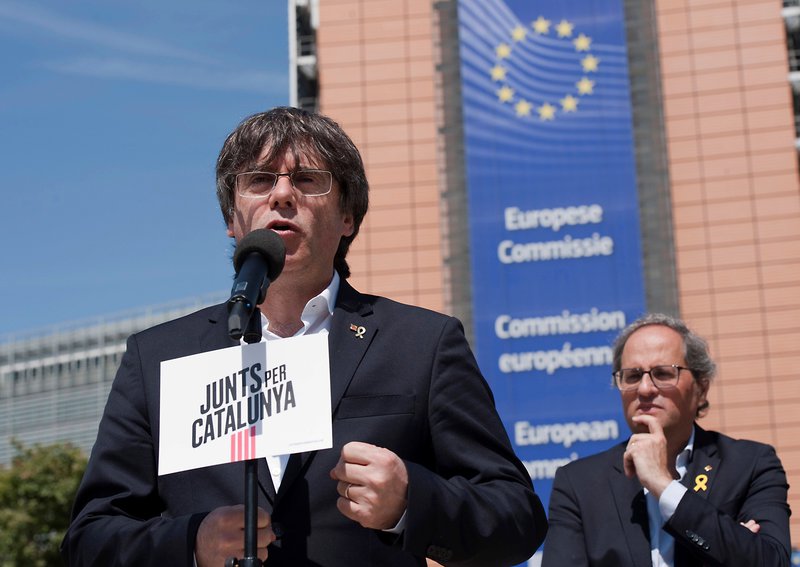1,700,000 reasons for being a Member of the European Parliament
Some 1.7 million people voted for Puigdemont, Comín and Junqueras in the European election but Spain is determined to prevent them from carrying out their functions as MEPs
Catalan candidates to the European Parliament representing pro-independence parties have never received such support at the ballot box as they did on May 26. Over 1.7 million people voted for the ERC and JxCat parties, with the leader of the latter, Carles Puigdemont, getting the most votes. That is an affirmation of his continued significance in the independence movement, despite ERC being the big winner in the local elections the same day and the Spanish general election in April.
Now it is up to Puigdemont and ERC head Oriol Junqueras, one in exile and the other in prison, to defend their right to carry out their functions as elected MEPs. Fighting that fight with Puigdemont in exile are Toni Comín and Clara Ponsatí who, as the third candidate on the JxCat list, can only take up her seat if Brexit goes ahead. Should the UK leave the European Union, Spain would get an extra five representatives: Estrella Dura (PSOE), Gabriel Mato (PP), Adrián Vázquez (Cs), Margarita de la Pisa (Vox) and Ponsatí (JxCat).
In short, they are four cases that can only contribute to raising the international profile of the Catalan conflict and that involve Europe in the issue, whatever action it decides to take. For now, Puigdemont, Junqueras and Comín are elected MEPs after winning their seats in an election in which well over a million people voted for them. That means that by rights they should be at the first plenary session of the European Parliament on July 2. Clearly, the case of Junqueras is different, as he is in custody while standing trial in the Supreme Court. The lawyer of Puigdemont and Comín, Gonzalo Boye, continues to argue that all the rights of his clients remain intact and that there is no obligation that they register their seats in the Spanish Parliament. If they were to step foot on Spanish territory, they would be immediately arrested. Yet, the Spanish authorities appear to be determined to put as many obstacles in their way as possible, even tailoring the law so as to prevent Junqueras and the two exiles from ever sitting in the European chamber.
The scenario put forward by the lawyer of the two exiles is the opposite of what the state authorities say, taking statements from the European Parliament warning that the MEPs-elect will have to register their seats in Madrid as a vindication. At the same time, JxCat and Boye insist that both exiles already have parliamentary immunity and that they are thus protected from the effects of the arrest warrant hanging over them should they set foot on Spanish soil. The legal dispute could well end up in the European courts.
Boye insists that the exiles will be MEPs and will be able to register their seats. “If that was not the case, the Spanish authorities would not be so nervous, to the point that they are resorting to using the law ,” he says. The lawyer will not reveal the strategy he will follow in the next few weeks, but he says “it is simpler than anyone might think.”
feature




